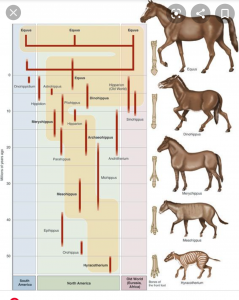- May 17, 2021
- 1,121
- 387
- 38
- Country
- United States
- Faith
- Protestant
- Marital Status
- Divorced
I'm very intrigued by historical creationism, a way of interpreting the first few chapters of Genesis found in the book Genesis Unbound by John Sailhamer, based on an understanding of the original Hebrew.
Genesis Unbound: A Provocative New Look at the Creation Account by John H. Sailhamer
Basically, historical creationism teaches that the six days of Genesis refer specifically to the preparation of Eden and the creation of Adam and Eve, rather than the creation of the rest of the universe, which happened in the indefinite past.
Historical creationism teaches that Adam was created out of the dust of the ground, and that the Biblical genealogies are correct that humanity is about 10,000 years old, but not that creation itself is 10,000 years old.
Genesis Unbound: A Provocative New Look at the Creation Account by John H. Sailhamer
Basically, historical creationism teaches that the six days of Genesis refer specifically to the preparation of Eden and the creation of Adam and Eve, rather than the creation of the rest of the universe, which happened in the indefinite past.
Historical creationism teaches that Adam was created out of the dust of the ground, and that the Biblical genealogies are correct that humanity is about 10,000 years old, but not that creation itself is 10,000 years old.
Historical creationism maintains that Genesis 1:1 is the account of the creation of the universe. This creation took place “in the beginning”—in an unspecified period of time that may have lasted a very long time and may have been a very long time ago. The Genesis account simply does not give us any time frame for when the physical universe was created. It could well have been created long ago (even millions or billions of years in the past), or it may have been created very slowly over time. Therefore, the historical creationist interpretation of the Genesis account does not require a “young-earth” view.
When we pick up the story in Genesis 1:2, the earth is unformed and unfilled. Prior to modern science, there would have been little or no understanding of the concept of Earth as a planet. Thus, according to historical creationism, the word earth would have been understood as a specific area of land, not “Planet Earth.” Genesis 1:2—2:24 recounts the preparation of a specific area of habitat for mankind—the Garden of Eden—which took place over a literal six days.
The relationship of Genesis 1:1 and 1:2ff can be stated in the following paraphrase: “In the beginning, God created the universe. After He did this, He turned His attention to a specific area for man to live in. It was dark, so He said, ‘Let there be light.’” The words formless and void in Genesis 1:2 (KJV) can refer to a wasteland or wilderness that is unable to sustain life. (The term translated “formless” is also used in Deuteronomy 32:10 to refer to the wilderness at the time of Israel’s wanderings. Had it not been for God’s special provision, the people could not have survived their time there.) So, according to historical creationism, rather than Genesis 1:2 referring to the whole earth as a formless mass, it refers only to a specific section of wasteland that God had chosen for man to live in. (The whole planet may have been a barren waste, but that is outside the scope of the text.)
So, God spent a week of literal, 24-hour days to get the Garden of Eden ready for man. He first commanded the sun to rise: “Let there be light.” On Day 4, God did not bring into existence the sun and moon (they had already been created in Genesis 1:1); rather, He declared their purpose. Instead of “let there be lights in the vault of the sky,” historical creationists would argue that the best translation of Genesis 1:14 would be something like this: “Let the lights in the vault of the sky be signs.” The lights had existed since Day 1 and were already providing light, but, on Day 4, God proclaimed their significance—just as the rainbow may have existed before Noah’s time, but after the flood God gave it special significance. In Genesis 1:14 God revealed that the purpose of the heavenly bodies is to serve mankind.
What is historical creationism? | GotQuestions.org
Historical creationism asserts that God created the universe, which lasted for an indeterminate amount of time, prior to God preparing the land for habitation in six days.[1] Historical creationism appears to be the most appropriate interpretation of the Creation account for three reasons. First, John Sailhamer explains that a proper interpretation of the word reshit, which is the Hebrew word for “beginning,” supports historical creationism.[2] In the Bible, the term reshit “always refers to an extended, yet indeterminate duration of time – not a specific moment…which precedes an extended series of time periods.”[3] In other words, the phrase in Genesis 1:1, “in the beginning,” may represent billions of years of the universe’s existence prior to the six days of activity in Genesis 1:2-31, which aligns with current scientific data.[4] Second, historical creationism supports God’s ex nihilo creation, meaning that God created “without the use of preexisting materials.”[5] Third, historical creationism views Genesis 1 and 2 as a literal explanation of God’s creative work, as opposed to interpreting the Creation account as myth or metaphor.[6] Finally, historical creationism overcomes a number of problems facing other Creation theories, including the lack of biblical support for the gap theory and theistic evolution; the absence of literal interpretation of the literary framework view and day-age view; and lack of scientific support by young-earth creationism.[7]
Mark Driscoll’s Creation Debate - Spiritual Discipleship

